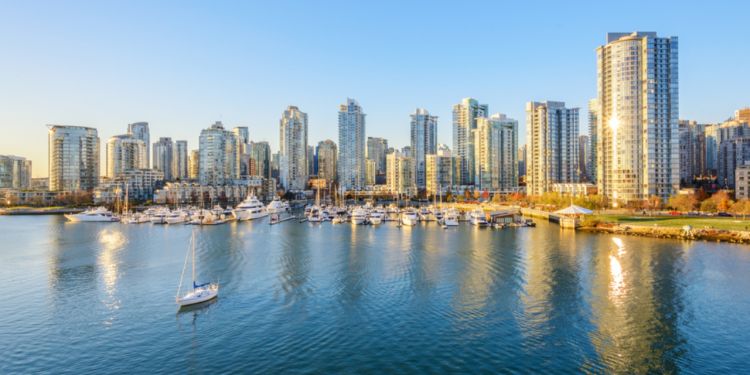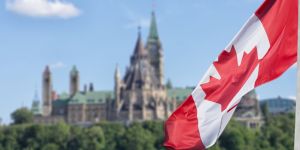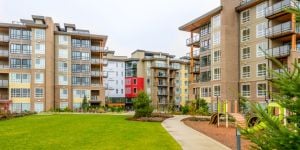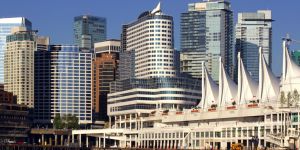
Vancouver, recognized as one of the best cities to live in globally, holds the position of Canada's third-largest city. It stands out for its coastal setting, cultural diversity, mild climate, proximity to mountains, and, most notably, its rich flora and fauna.
Vancouver, with its focus on outdoor living, ecology, and work-life balance, is a city that you're bound to enjoy. QS Best Student City Rankings for 2024 place Vancouver at the 18th spot among the best cities globally for international students. The city is home to two major universities, along with several smaller colleges and institutions.
Higher education in Canada
In Canada, higher education is overseen by individual provinces, and there may be slight variations from one region to another. The country is home to universities that offer undergraduate (bachelor's), graduate (master's), and postgraduate (doctorate) degrees, as well as faculties providing technical training. Undergraduate programs typically span 3 to 4 years, while graduate and professional programs usually last 1 to 3 years. Most Canadian universities are publicly funded, allowing you to attain a globally recognized degree at an affordable cost.
In Vancouver, the academic year is divided into three semesters: fall (September–December), winter (January–April), and summer (May–August). Programs usually commence in September, but it is also possible to make changes to your program during the year.
International students frequently discover that the higher education system in Canada differs from what they are accustomed to in their home countries. The communication between teachers and students is familiar yet marked by mutual respect. In the initial years, interaction might be limited, especially as courses are commonly conducted in lecture theaters. To compensate for this, instructors establish dedicated times each week when they are accessible, either online or in person. Gradually, a mentoring dynamic evolves between students and lecturers.
Canadians are known for their friendliness and kindness. Classrooms are typically interactive, friendly, and open-minded. Nevertheless, there exists a clear professional boundary between teachers and students.
In addition, it's common for food and drinks to be permitted in classrooms, which can occasionally result in students arriving late or leaving early!
The language of instruction in Vancouver
English is the main language of instruction at Vancouver universities. If English is not your first language, you'll usually need to prove your level of English through an exam as part of the application process.
Vancouver's main universities
University of British Columbia
The University of British Columbia (UBC) is Western Canada's largest university. It is known for its innovative spirit, which challenges the current system. Canadian Prime Minister Justin Trudeau is an alumnus of the University. UBC enjoys an outstanding reputation worldwide for its research and graduate programs. With its leafy campus bordering the Pacific Ocean, the University is a little out of the way, but well served by public transport.
UBC was ranked 34th best university in the world by QS World University and has over 56,000 students. More than 15,000 current students come from outside Canada, while alumni represent the institution in over 160 different countries. Among the most coveted programs are American Studies, Urban Forestry and Biomedical Engineering.
Its “flexible learning” concept opens up a world of possibilities for students, with deserved success as the reward. This concept is exemplified by a six-pillar model of moving away from the traditional classroom and incorporating new teaching approaches and methods. In addition, the University offers professional and personal training courses that encourage lifelong learning. UBC has also modernized and embraced the digital age, offering many programs online.
Each year, UBC celebrates academic success by awarding over $30 million in scholarships and financial aid to international students. It also guarantees housing for first-year students, offering 13,000 beds in 15 residences.
Find out more about the University of British Columbia here.
Simon Fraser University
Founded in 1965, Simon Fraser University (SFU) has been named Canada's best comprehensive university by Maclean's magazine twelve times in the last thirteen years. It has three campuses: one atop Burnaby Mountain, one in Vancouver, and one in Surrey. SFU prides itself on being Canada's most socially engaged research university. Innovative education, cutting-edge research, and community engagement are three of its primary goals. Ranked 318th in the QS Rankings, SFU has over 24,000 students, including 7,860 international students.
The University will have much more to offer, but nothing beats the breathtaking mountain panorama from the Burnaby campus. What's more, it offers several semesters during which students can take advantage of great flexibility and immerse themselves in the world of work to gain initial professional experience. Well-known programs include archaeology, environmental studies, business and design, and mechatronics systems engineering.
Find out more about Simon Fraser University here.
Admission requirements for Vancouver universities
Admission criteria for international students vary depending on the university and the student's country of origin. If English is not your first language, you'll need to take an English test. If your level of English doesn't match the university's expectations, don't despair! You'll be able to enroll in English courses lasting from 6 weeks to 8 months.
If you are neither a resident nor a Canadian citizen, but wish to study in Canada for more than six months, you will need to obtain a study permit. The procedure begins when you receive your acceptance letter from your university. It's advisable to start the process as soon as you receive the letter, as it can take a long time. You can now apply online via the Canadian immigration website. To apply, you'll need to provide the letter from the university, identification, proof of financial resources and, if applicable, a medical certificate. This UBC guide provides information on study permits.
Tuition fees in Vancouver
Although tuition costs are lower than in the US or the UK, Canada remains an expensive destination compared to many other countries. According to the EduCanada website, undergraduate tuition for international students is $36,100 CAD for an 8-month year.
By comparison, at the University of British Columbia, these same fees range from CA$42,543 to CA$58,641, depending on the program.
Scholarships, grants and merit-based bursaries are available for international students at Vancouver universities. These scholarships can be awarded to students with excellent academic results, sporting achievements or simply financial difficulties. QS Top Universities has produced a guide to the financial support available to international students. The country of maple syrup has adopted a formidable strategy: that of retaining qualified students in the university system. To this end, both the government and the universities themselves offer significant financial support to students achieving outstanding academic results. Both UBC and SFU offer the aforementioned scholarships.
Cost of living in Vancouver
In Vancouver, you'll enjoy an exceptional location near oceans, mountains, and forests. It is the most expensive city in Canada. Nevertheless, the cost of living is relative to individual needs and preferences. There are solutions that can save you money. For example, sharing off-campus accommodation, limiting spending on outings, favoring home-cooked meals over restaurant meals, and favoring public transportation will considerably reduce your budget. To help you set a budget, UBC has put together an explanatory sheet. According to Numbeo, the estimated monthly cost for a single person is CAD$1,489.3, not including rent and tuition. Try to budget between $1,600 and $2,000 a month for expenses, not including housing and tuition.
Accommodation as a student in Vancouver
Students can choose to live on or off campus. Each type of accommodation has its advantages and disadvantages. It's best to choose the one that meets your expectations, but especially your budget. Living on campus is convenient in that you'll be fully integrated into the university community. However, the cost is higher. Generally, students live on campus during their first year and then continue their studies by living in off-campus accommodation. Many universities offer residence places specially reserved for international students.
Due to limited availability, you should apply for on-campus accommodation as soon as possible if you wish to live in a hall of residence. On-campus accommodation can be in shared flats or individual apartments. The University of British Columbia offers a guaranteed residence program for first-year students.
Every year, Simon Fraser University maintains a waiting list for residencies, so be sure to apply early, even before you've been accepted.
Accommodation costs in Vancouver are calculated for one academic year, the equivalent of 8 months' rent (September to April), and range from $10,300 to $15,000 CDN, depending on the residence and food option chosen.
If you attend UBC's Point Grey campus and live off campus, you must be able to secure transportation to the school.
If you're thinking of living off-campus, the UBC website provides lots of useful information to help students find accommodation, understand the application process, and know their rights as tenants. Housing costs are particularly high in the neighborhoods directly surrounding the university and metropolitan Vancouver. Many students choose to live in East Vancouver, reputed to be less expensive. However, don't overlook the commute time (45–60 minutes to campus from the east end). The cheapest rents are around $700 CAD per month for a room in a shared apartment. Sharing an apartment or house is a much more affordable option, and you can find roommates on university websites. Numbeo estimates the monthly rent for a one-bedroom downtown apartment at CAD$2,782.45 in September 2023.
Getting around Vancouver
Students benefit from a reduced-fare card: the U-Pass BC, which allows unlimited travel on public transport. This pass is subsidized and available to all students who take the bus, Seabus, SkyTrain, and Canada Line Transit Services. You can view the U-Pass BC fees here. Vancouver also has a vast bicycle-friendly infrastructure. Bicycles are allowed on all public transport in the city.
Employment and internships in Vancouver
If you are an international student with full-time status, you are generally authorized to work on or off campus, provided you are in possession of a valid study permit. You'll need a Social Insurance Number (SIN), which you can request from Service Canada. Off-campus work is limited to 20 hours per week during school terms. You can work full-time during vacations.
It's very common for international and Canadian students to take training courses or internships as part of their program of study, which is an excellent way to combine theory and practice. It's also the perfect opportunity for them to gain their first professional experience in Canada and get a foothold in the field they're passionate about. You'll need to apply for a work permit from the immigration authorities.
Student life in Vancouver
Vancouver is often named one of the world's best cities for quality of life. During your studies, be sure to combine business with pleasure by taking advantage of everything the city has to offer, from its vast green spaces to its multicultural and cosmopolitan community. Vancouver has something for everyone. As for the city's climate, it's much milder than that of most other parts of Canada: the risk of snowfall is minimal, but the region is not spared from rain.
Granville Street, Vancouver's lively neighborhood, can be incredibly hectic on weekends. Gastown is a neighborhood with more atypical bars and restaurants. Another popular spot for students is Kitsilano, with its trendy beachside bars.
However, it's not just in and around metropolitan Vancouver that students can find all kinds of entertainment. UBC and SFU also have separate campuses where students can go about their business. The city is a great place to meet people and become part of a group you can identify with. Canadian universities focus on the personal development of their students, not just their academic performance. By taking part in campus life, you'll meet people who will help you adapt more easily to your new city and campus.
Canadians are reputed to be the friendliest people in the world. Expect Vancouverites to be outgoing and open-minded. They are particularly proud of their "West Coast" spirit, which sets them apart from their big neighbor Toronto and the "East Coast".
Things to see and do in Vancouver
Vancouver boasts a natural heritage: you'll never be far from the beach, the mountains or the forest. Within the city, you'll find Stanley Park, a 400-hectare green oasis in the West Coast rainforest. Vancouver's tourist attractions include the Capilano Suspension Bridge, which allows you to cross the Capilano River from a height of 140m. Granville Island is also a great place to go out at the weekend. You'll be spoilt for choice with its market, restaurants, theaters, and craft workshops.
When it comes to Vancouver's culinary culture, you won't have to look far for a good meal. Opt for Asian-influenced cuisine or indulge in shellfish and fresh ocean flavors with Pacific Northwest specialties. Visit the city's many craft breweries, savor fresh, healthy fare, and take a trip to Japan with the tastiest sushi. For those on a tighter budget, Vancouver's food truck market is exponential. These offer inexpensive breakfasts and meals all day long.
Less than two hours' drive from Vancouver is the famous Whistler-Blackcomb ski resort. Here, you can enjoy the pleasures of winter skiing. However, if a two-hour drive seems too long, Grouse Mountain is closer to campus, just 20 minutes from the city. And if you've got a taste for the great outdoors, indulge in exploring Vancouver with its endless hiking trails, whale watching, mountain biking, and much more.
Useful links:
Application to study in Canada - study permit
Studying in Canada as an international student
We do our best to provide accurate and up to date information. However, if you have noticed any inaccuracies in this article, please let us know in the comments section below.











